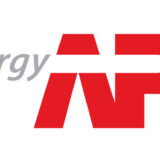
Is it time to revisit Group III+?
Group II+ and Group III+ base stocks do not officially exist as categories under the American Petroleum Institute’s (API) Annex E of API 1509, Engine Oil Licensing and Certification System (EOLCS), a voluntary licensing and certification program administered by the largest U.S. oil and gas industry trade group.
However, the reality is, in today’s marketplace, there’s a proliferation of so-called “Group III+” products. Base oil manufacturers like SK Lubricants and Petronas both offer “Group III+” base oils. Chevron recently announced that it was upgrading its 100R base oil to “Group II+ quality.”
Annex E of API 1509 only defines five categories of base stocks, from Group I to V.
API’s base stock categories are widely used throughout the global lubricants industry. Group II base stocks contain greater than or equal to 90% saturates and less than or equal to 0.03% sulfur and have a viscosity index (VI) greater than or equal to 80 and less than 120. Group III base stocks contain greater than or equal to 90% saturates and less than or equal to 0.03% sulfur and have a VI greater than or equal to 120.
At a meeting of the Auto-Oil Advisory Panel (AOAP) in Denver, Colorado, U.S.A., on Thursday, a representative from General Motors (GM) expressed concern when a fully formulated oil originally blended with “Group III+” base oil showed a drop in performance when the formulation was switched to a Group III base oil. This was apparently detected in an aftermarket audit of dexos licensees conducted by the U.S. automaker.
“We have seen a pattern that products that are approved with “Group III+” showed lower performance when replaced with a non-plus,” the specification-development body for the API S Service Category was told.
Although no formal request was made to the group, GM’s concern was referred to the API Base Oil Interchange (BOI)/Viscosity Grade Read Across (VGRA) Task Force, who in turn asked the OEM for additional data, especially the base oil formulation.
It is unclear what actions, if any, API can take, since dexos is an OEM specification developed by GM. Nonetheless, it has resurrected an issue which has been raised in the past–the addition of “plus” categories to Annex E. That is easier said than done, as there are both technical and marketing issues that API, which is made up not only of base oil manufacturers but also lubricant manufacturers and marketers, as well as additive manufacturers, will have to address.











